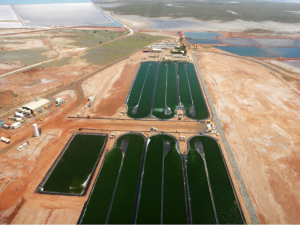Arizona-based Algae Biomass Organization member Heliae announced this week that they have successfully raised $28.4 million from new and existing investors.
The funding will support the day-to-day operation and expansion of Heliae’s first commercial facility in Gilbert, AZ, opening this September. Heliae plans to use the facility to supply high value personal care and nutraceutical products for already existing customers.
From the Phoenix Business Journal:
“With our first commercial plant coming on line and this latest round of funding, the company is on track to deliver high-quality, algae-based products to the therapeutic, nutraceutical, agroscience and personal care industries,” said Frank Mars, co-founder and chairman of the board. “Heliae is delivering against our mission to advance the future of algae.”
The facility with be built out in two phases. The first will be tailored towards nutraceuticals from a strain of algae which requires extensive light intake. The second phase will utilize very low light conditions and will focus on personal care products, showcasing the diversity and flexibility of Heliae’s Volaris production platform.
From Biofuels Digest:
Heliae’s flexible Volaris platform combines the best of existing algae production models, utilizing both sunlight and low-cost carbon feedstocks to optimize output. Volaris is a mixotrophic algae production platform, a hybrid of known phototrophic and heterotrophic models, which affords decreased capital costs, reduced contamination and increased productivity and product optionality.
The future looks bright for this ABO member and we expect we’ll have more good news to report as things continue to develop.
See Heliae’s Press Release here.


